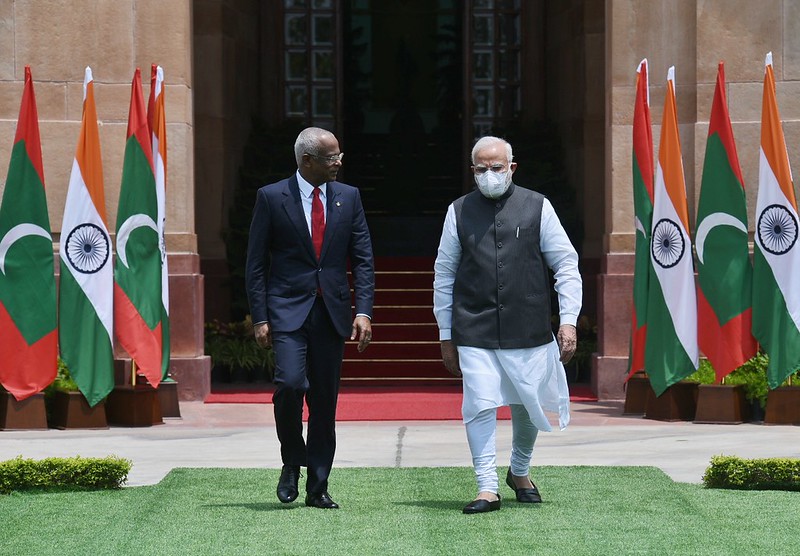Maldivian Maneuvers: India Navigates China’s Shadow in the Indo-Pacific

The turquoise waters of the Maldives shimmer like a jewel in the crown of the Indo-Pacific, but beneath the idyllic surface lies a simmering geopolitical game. Here, India seeks to secure its strategic interests and counter China’s growing influence, all while the watchful eyes of the West observe.
India’s Vision, China’s Shadow:
India’s Indo-Pacific strategy champions a rules-based order, where sovereignty and cooperation trump dominance. In the Maldives, this translates to increased economic engagement, with projects like the Addu International Airport fostering ties. On the security front, joint military exercises and defense exchanges project India’s maritime strength, a vital check against China’s ambitions.
However, China casts a long shadow. Generous loans and infrastructure projects have granted it significant leverage, raising concerns about debt-trap diplomacy and potential military presence – scenarios India vehemently opposes. This economic entanglement and the possibility of a Chinese base threaten India’s regional dominance and maritime security.
Navigating the Challenges:
India’s Maldivian gambit faces hurdles:
- Domestic Dance: Balancing Maldivian politics with maintaining good relations with both China and the West requires a delicate diplomatic waltz.
- Perception Matters: Countering the narrative of Indian “interference” is crucial to ensuring its efforts resonate with the Maldivian people.

Beyond India: America’s Role:
While India takes the lead, the US plays a supporting role, sharing India’s concerns about China:
- Military Support: Joint exercises and maritime domain awareness initiatives bolster regional security, complementing India’s efforts.
- Development Diplomacy: US aid programs in areas like governance and environment complement India’s economic outreach.

Conclusion:
The Maldives has become a strategic pawn in the Indo-Pacific power struggle. India’s proactive engagement, coupled with the US’s strategic support, offers a compelling alternative to Chinese dominance. However, success hinges on navigating domestic politics, countering negative perceptions, and fostering genuine partnerships with the Maldivian people. The azure waters of the Maldives may yet hold the key to a stable Indo-Pacific future, but the game is far from over.







